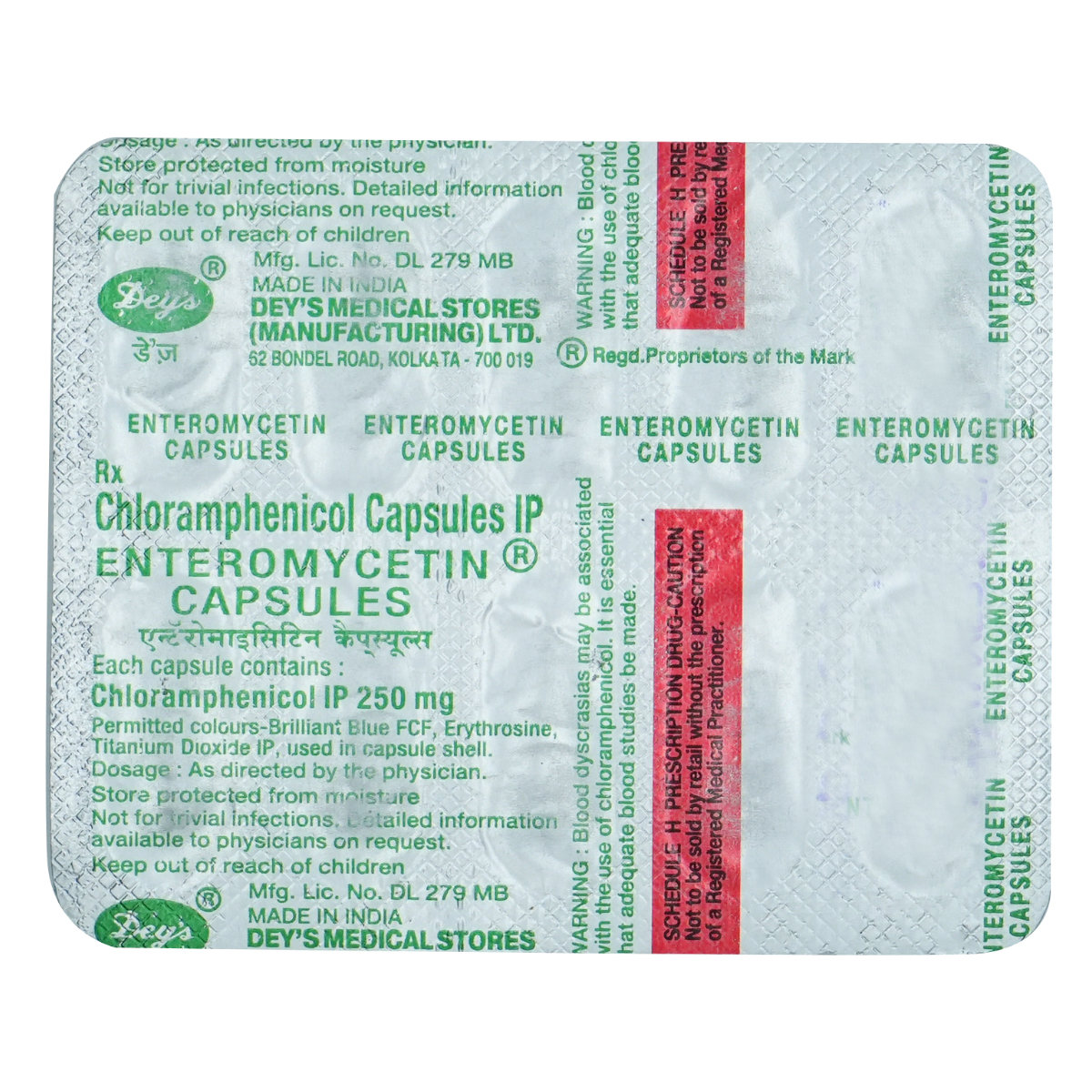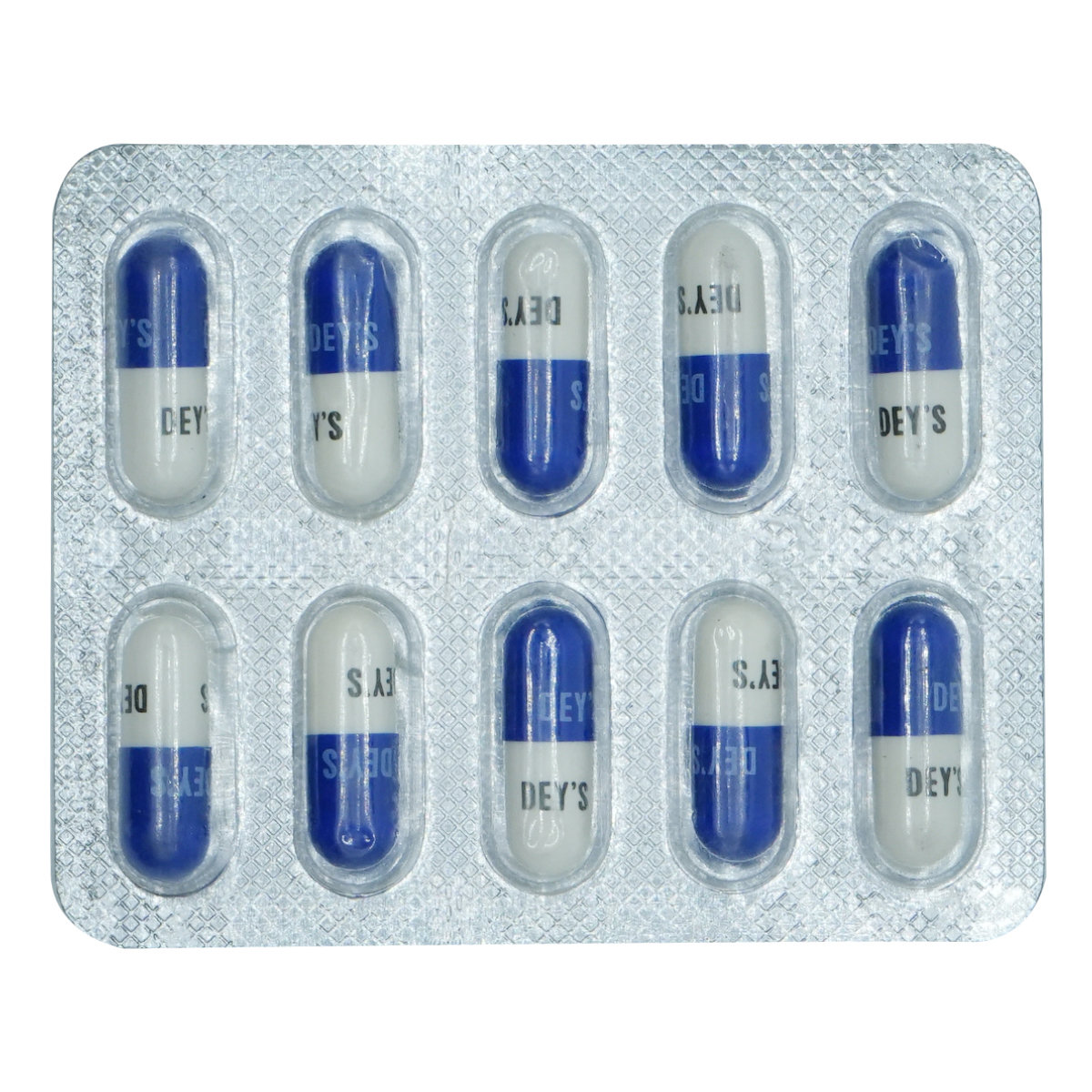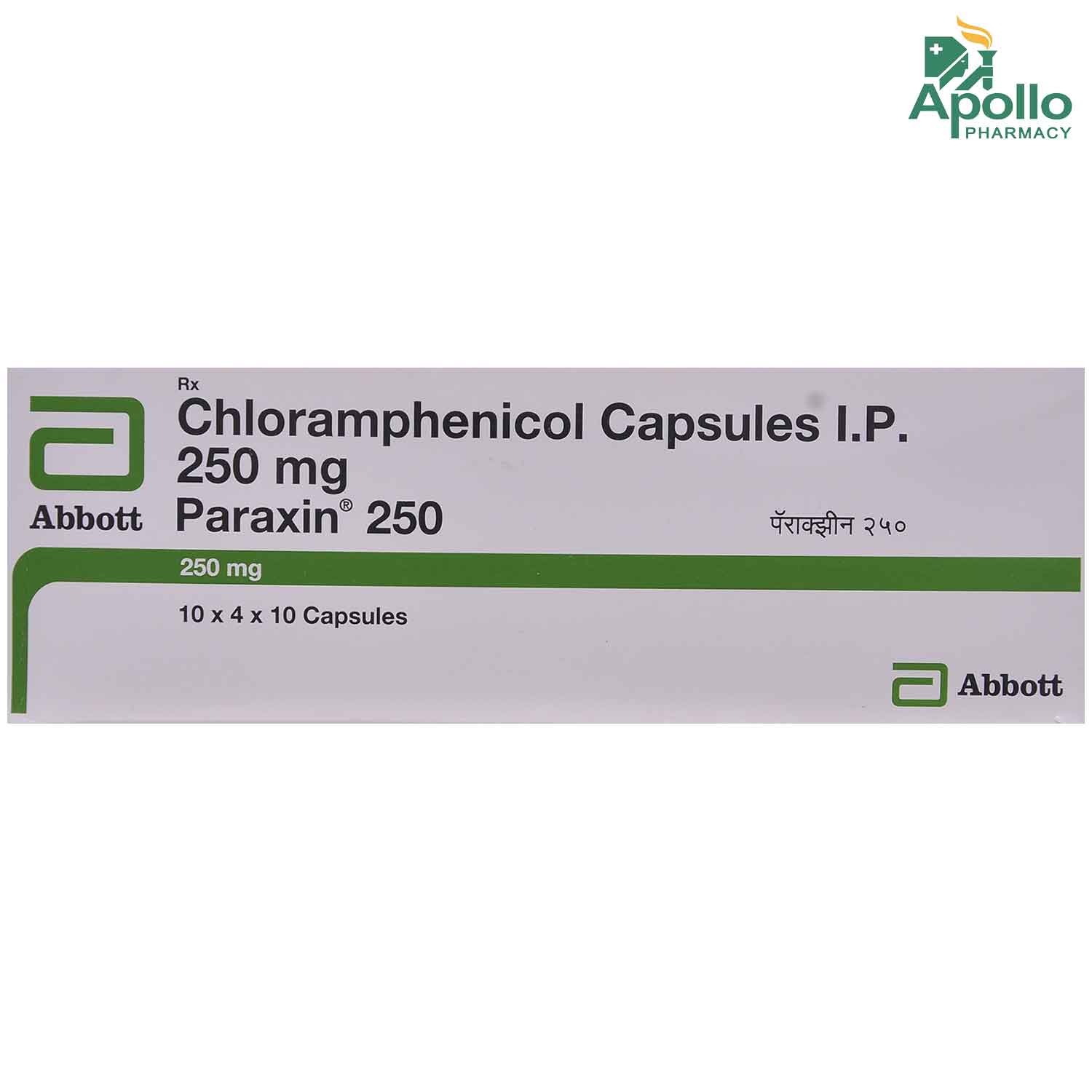ENTEROMYCETIN 250MG CAPSULE
MRP ₹90
(Inclusive of all Taxes)
₹13.5 Cashback (15%)
Provide Delivery Location
Online payment accepted
 Prescription drug
Prescription drugWhats That
Composition :
Manufacturer/Marketer :
Consume Type :
Expires on or after :
Return Policy :
About ENTEROMYCETIN 250MG CAPSULE
ENTEROMYCETIN 250MG CAPSULE belongs to the group of antibiotic medicines used to treat bacterial infections. It is used to treat typhoid fever and other dangerous infections where other antibiotics are ineffective. Bacterial infections are caused due to the multiplication of harmful bacteria inside or on the body. ENTEROMYCETIN 250MG CAPSULE does not work against infections caused by viruses, including colds and flu.
ENTEROMYCETIN 250MG CAPSULE contains ‘Chloramphenicol’ that works by preventing the synthesis of essential proteins necessary for vital bacterial functions. Thus, it kills the bacteria and helps treat and prevent the spread of infections. ENTEROMYCETIN 250MG CAPSULE is a broad-spectrum antibiotic which is active against both gram-positive and gram-negative bacteria.
The dose of ENTEROMYCETIN 250MG CAPSULE can vary depending on your condition and the severity of the infection. In some cases, you may experience common side effects, such as nausea, vomiting, diarrhoea, and headache. Most of these side effects do not require medical attention and will resolve gradually over time. However, you are advised to talk to your doctor if the side effects persist or worsen.
Do not take ENTEROMYCETIN 250MG CAPSULE if you are allergic to any of its components or if you are pregnant, planning for pregnancy or breastfeeding. ENTEROMYCETIN 250MG CAPSULE is not recommended for use in children. Inform your doctor about all the medicines you are taking and your health condition to rule out any unpleasant side effects/interactions.
Uses of ENTEROMYCETIN 250MG CAPSULE
Directions for Use
Key Benefits
ENTEROMYCETIN 250MG CAPSULE belongs to the group of antibiotic medicines used to treat bacterial infections. It is used to treat typhoid fever and other dangerous infections where other antibiotics are ineffective. ENTEROMYCETIN 250MG CAPSULE contains ‘Chloramphenicol’ that works by preventing the synthesis of essential proteins necessary for vital bacterial functions. Thus, it kills the bacteria and helps treat and prevent the spread of infections. ENTEROMYCETIN 250MG CAPSULE is a broad-spectrum antibiotic active against both gram-positive and gram-negative bacteria.
Storage
Drug Warnings
Do not take ENTEROMYCETIN 250MG CAPSULE if you are allergic to any of its components, if you have been recently vaccinated if you have porphyria (a metabolism disorder), minor infection, if you are taking medicines that may suppress the bone marrow, or if you are pregnant or breastfeeding. Inform your doctor if you have liver or kidney problems. Chloramphenicol may cause grey baby syndrome (a condition in which the baby’s skin appears grey); please consult your doctor if you have any concerns. ENTEROMYCETIN 250MG CAPSULE is not recommended for use in children.
Drug-Drug Interactions
Drug-Drug Interactions
Login/Sign Up
Taking Flibanserin with Enteromycetin 250mg Capsule may significantly increases the blood levels of flibanserin
How to manage the interaction:
Taking Enteromycetin 250mg Capsule with Flibanserin is not recommended, but can be taken together if prescribed by a doctor. However, consult your doctor if you experience dizziness, lightheadedness, and fainting. Do not discontinue any medication without consulting a doctor.
Taking lomitapide with Enteromycetin 250mg Capsule can significantly increase the blood levels of lomitapide.
How to manage the interaction:
Taking Enteromycetin 250mg Capsule with Lomitapide is not recommended, but can be taken together if prescribed by a doctor. However, consult your doctor if you experience fever, chills, joint pain or swelling, unusual bleeding or bruising, skin rash, itching, loss of hunger, weakness, nausea, vomiting, dark colored urine, light colored stools, and yellowing of the skin or eyes. Do not discontinue any medications without consulting a doctor.
Taking Enteromycetin 250mg Capsule with triazolam can increased the effects of Enteromycetin 250mg Capsule.
How to manage the interaction:
Taking Triazolam with Enteromycetin 250mg Capsule is not recommended, but can be taken together if prescribed by a doctor. In case you experience any unusual symptoms, consult a doctor. However, if you experience any unusual symptoms contact your doctor. Do not discontinue any medications without consulting a doctor.
When Pimozide is taken with Enteromycetin 250mg Capsule, the amount of Pimozide in the blood increases which increase the risk of an irregular heart rhythm and other side effects.
How to manage the interaction:
Although taking Enteromycetin 250mg Capsule and Pimozide together can evidently cause an interaction, it can be taken if your doctor has suggested it. However, if you experience dizziness, lightheadedness, fainting, shortness of breath contact your doctor right away. Do not stop using any medications without first talking to your doctor.
Taking Naloxegol and Enteromycetin 250mg Capsule can significantly increase the blood levels of naloxegol that may increase the risk of side effects.
How to manage the interaction:
Although taking Enteromycetin 250mg Capsule and Naloxegol together can evidently cause an interaction, it can be taken if your doctor has suggested it. However, if you experience sweating, runny nose, or abdominal pain contact your doctor know right away. Do not stop using any medications without a doctor's advice.
Taking Enteromycetin 250mg Capsule and Hydrocodone can significantly increase the blood levels of cariprazine.
How to manage the interaction:
Although taking Enteromycetin 250mg Capsule with Hydrocodone can possibly result in an interaction, it can be taken if your doctor has advised it. If you're having any of these symptoms like dizziness, lightheadedness, headache, flushing, fainting, and heart palpitations feeling tired, having trouble moving, difficulty swallowing or having seizures, it's important to let your doctor know. Do not stop using any medications without a doctor's advice.
Co-administration of acalabrutinib with Enteromycetin 250mg Capsule can significantly increases the blood levels of acalabrutinib.
How to manage the interaction:
Although there is a interaction between Enteromycetin 250mg Capsule and Acalabrutinib, but it can be taken together if prescribed by your doctor. However, if you experience symptoms like paleness, fatigue, dizziness, fainting, unusual bruising or bleeding, fever, chills, diarrhea, sore throat, muscle aches, shortness of breath, red or inflamed skin, body sores, and pain or burning during urination, call your doctor. Do not stop using any medications without talking to a doctor.
Taking Enteromycetin 250mg Capsule and Guanfacine may significantly increase the blood levels and effects of guanfacine.
How to manage the interaction:
There may be a possibility of interaction between Enteromycetin 250mg Capsule and Guanfacine, but it can be taken if prescribed by a doctor. It's important to keep an eye on your blood pressure and heart rate. However, if you experience symptoms such as drowsiness, dizziness, lightheadedness, fainting, headache, palpitations consult a doctor. Do not discontinue any medications without consulting a doctor.
When Everolimus is taken with Enteromycetin 250mg Capsule that may increase the risk of side effects.
How to manage the interaction:
Co-administration of Enteromycetin 250mg Capsule with Everolimus can result in an interaction, but it can be taken if a doctor has advised it. If you experience any unusual symptoms like persistent cough, fever, chills, mouth ulcers, paleness, unusual bruising, bleeding or blood in stools or urine, it's important to contact a doctor. Do not stop using any medications without talking to a doctor.
Taking Clozapine with Enteromycetin 250mg Capsule may increase the risk of infections.
How to manage the interaction:
Although there is a interaction between Clozapine and Enteromycetin 250mg Capsule, but it can be taken if prescribed by a doctor. However, if you experience fever, chills, diarrhea, sore throat, muscle aches, shortness of breath, blood in phlegm, red or inflamed skin, body sores, and pain or burning during urination contact your doctor right away. Do not stop using any medications without a doctor's advice.
Drug-Food Interactions
Drug-Food Interactions
Login/Sign Up
Diet & Lifestyle Advise
- Antibiotics can alter the useful bacteria in the stomach, which help in digestion. Therefore, you are advised to take foods rich in probiotics, such as yoghurt/curd, kefir, sauerkraut, tempeh, kimchi, miso, kombucha, buttermilk, natto and cheese.
- Eat fibre-rich food like whole grains, beans, lentils, berries, broccoli, peas and bananas.
- Avoid consumption of alcohol and usage of tobacco.
Side Effects of ENTEROMYCETIN 250MG CAPSULE
- Nausea
- Vomiting
- Diarrhoea
- Headache
Habit Forming
Therapeutic Class
All Substitutes & Brand Comparisons
RX
Out of StockAlphenicol 250mg Capsule
Alchemist Life Sciences Ltd
₹110
(₹0.99 per unit)
87% CHEAPERRX
Out of StockArmycetin Capsule
Agron Remedies Pvt Ltd
₹189.06
(₹1.7 per unit)
79% CHEAPERRX
Out of StockNotif 250mg Capsule
₹23.7
(₹2.13 per unit)
73% CHEAPER
Author Details
We provide you with authentic, trustworthy and relevant information
Drug-Diseases Interactions
Drug-Diseases Interactions
Login/Sign Up
FAQs
Disease/Condition Glossary
Bacterial infection: A bacterial infection is a condition in which harmful bacteria enter, multiply, and infect the body. It can target any body part and multiply very quickly. Generalized symptoms of bacterial infections are fever, chills, and fatigue. Bacterial infections vary from minor illnesses like sore throat and ear infections to severe brain infections like meningitis and encephalitis. Anyone can become infected with a bacterial infection. But, people with a weak immune system or taking immunosuppressive medicines are more prone to bacterial infections.

Have a query?
Alcohol
Safe if prescribed
It is not known if alcohol interacts with ENTEROMYCETIN 250MG CAPSULE. Please consult a doctor if you have concerns.
Pregnancy
Consult your doctor
Do not take ENTEROMYCETIN 250MG CAPSULE if you are pregnant as it may harm your foetus. Please consult your doctor if you have any concerns.
Breast Feeding
Consult your doctor
Do not take ENTEROMYCETIN 250MG CAPSULE if you are breastfeeding as it may pass into breast milk and harm your infant. Please consult your doctor if you have any concerns.
Driving
Safe if prescribed
ENTEROMYCETIN 250MG CAPSULE does not affect your ability to drive. However, drive or operate machinery only if you are alert.
Liver
Consult your doctor
Please consult your doctor if you have liver impairment/liver disease before taking ENTEROMYCETIN 250MG CAPSULE.
Kidney
Consult your doctor
Please consult your doctor if you have kidney impairment/kidney disease before taking ENTEROMYCETIN 250MG CAPSULE.
Children
Safe if prescribed
ENTEROMYCETIN 250MG CAPSULE is not recommended for use in children. Please consult your doctor if you have any concerns.









_0.jpg?tr=q-85)

